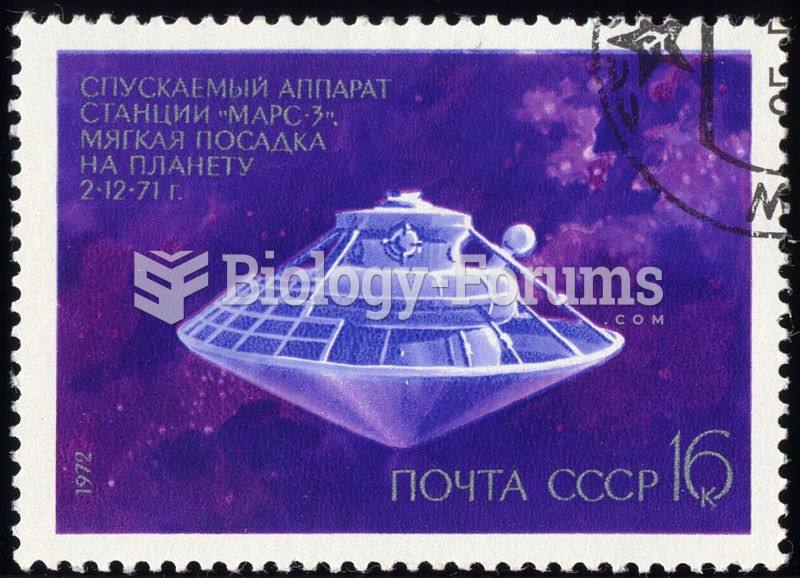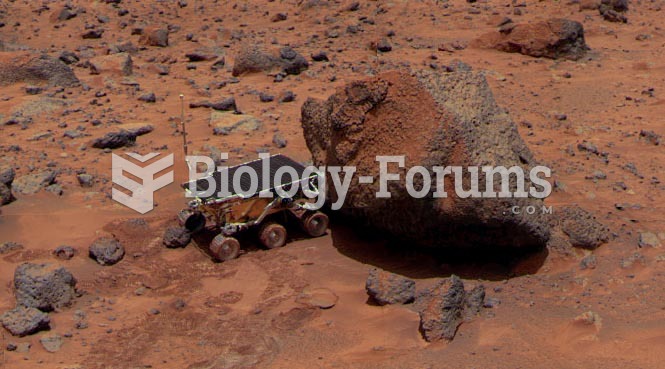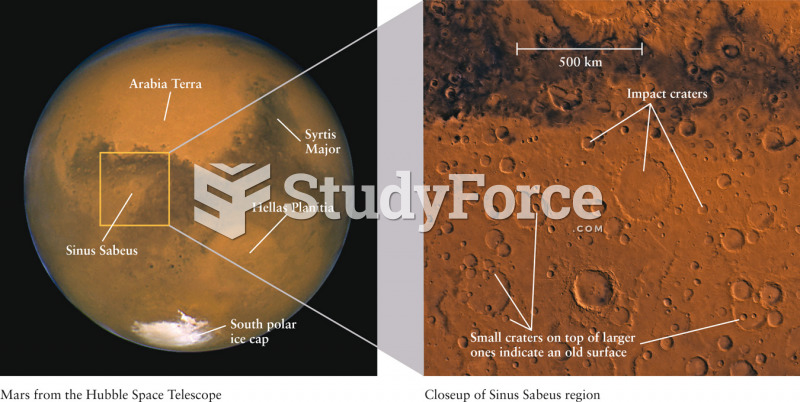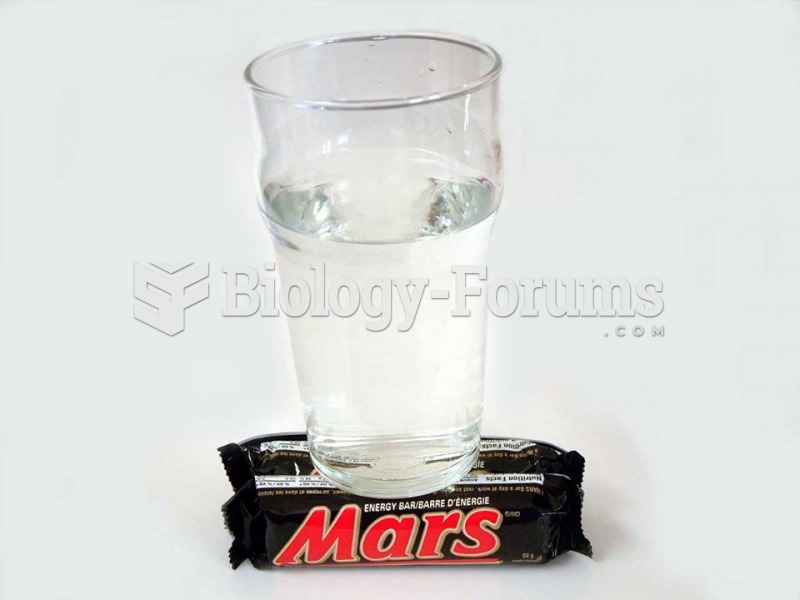|
|
|
Bacteria have flourished on the earth for over three billion years. They were the first life forms on the planet.
Urine turns bright yellow if larger than normal amounts of certain substances are consumed; one of these substances is asparagus.
The Romans did not use numerals to indicate fractions but instead used words to indicate parts of a whole.
There can actually be a 25-hour time difference between certain locations in the world. The International Date Line passes between the islands of Samoa and American Samoa. It is not a straight line, but "zig-zags" around various island chains. Therefore, Samoa and nearby islands have one date, while American Samoa and nearby islands are one day behind. Daylight saving time is used in some islands, but not in others—further shifting the hours out of sync with natural time.
To prove that stomach ulcers were caused by bacteria and not by stress, a researcher consumed an entire laboratory beaker full of bacterial culture. After this, he did indeed develop stomach ulcers, and won the Nobel Prize for his discovery.







